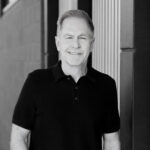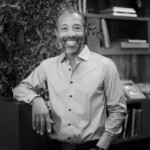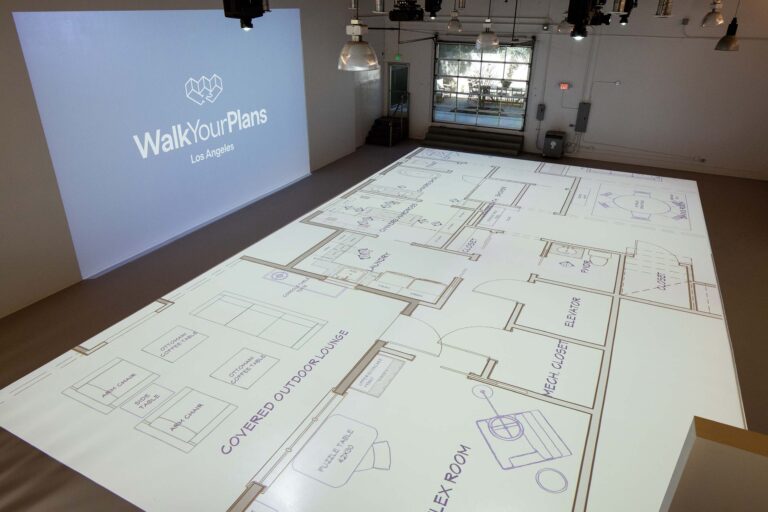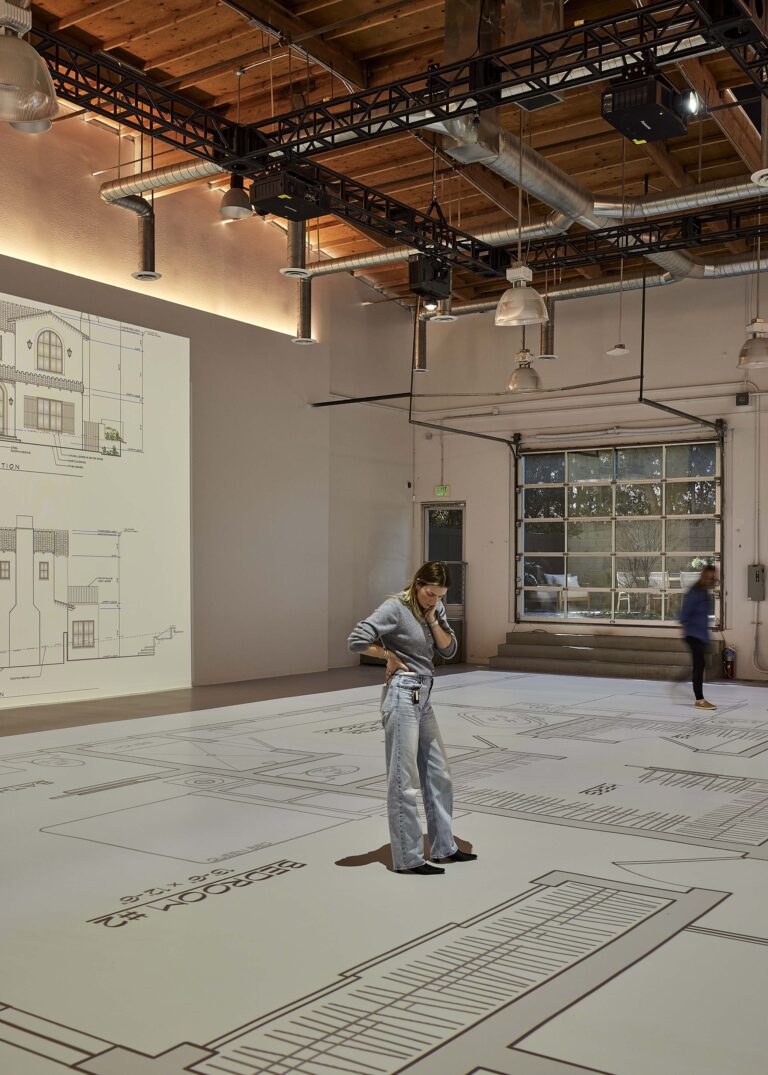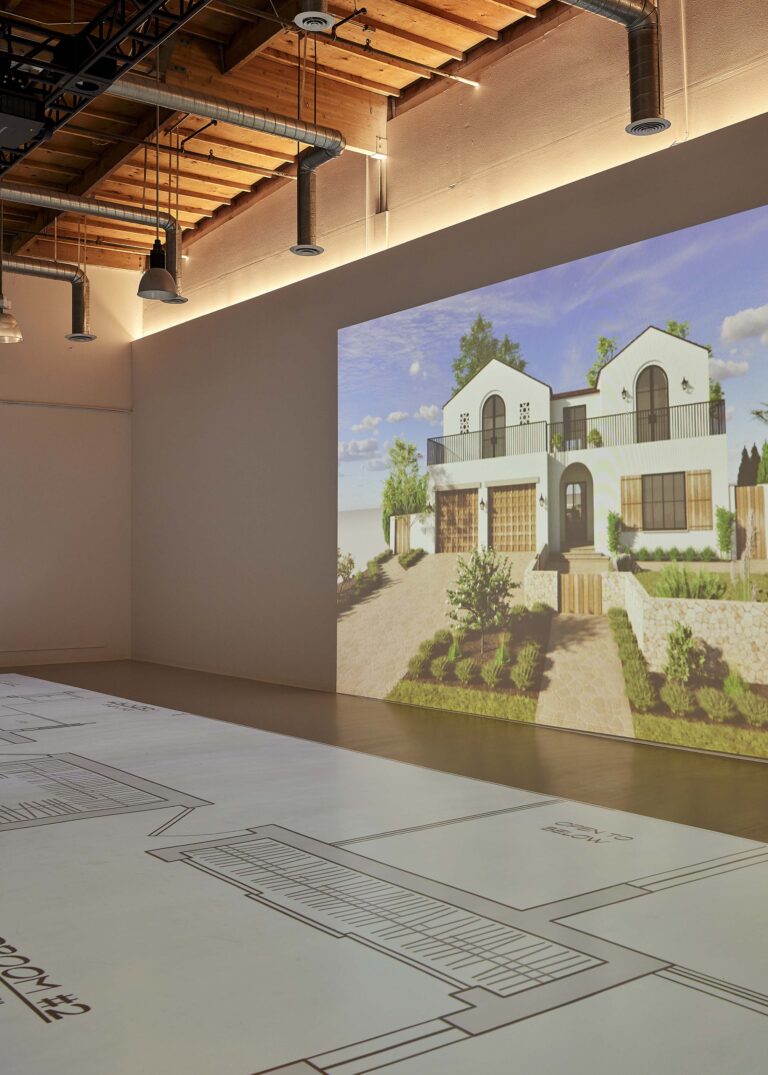Table of Contents
In this Episode
The Titans of Real Estate podcast talks with Santiago Arana of The Agency on how he turned $120 in his pocket into $4 billion in real estate working with A-List clients from around the world, all while getting his start as a waiter in a classic American Dream story.
Santiago Arana, who has closed billions of dollars of real estate across Los Angeles, started his remarkable journey from being a waiter to becoming a real estate powerhouse. He is now the Principal and Partner of The Agency, part of a power trio that includes Billy Rose and Mauricio Umansky, a preeminent brokerage in the luxury real estate market, and specializes in high-end residential real estate and new construction across the region’s most coveted neighborhoods.
In this episode, Santiago Arana shares his secrets on how he generates millions of dollars in sales every year, including his morning routine, tips on generating $420 million in sales in 2017, and more. Originally from Sucre, Bolivia, Santiago Arana’s international background has helped build him a strong network of contacts from every corner of the globe. Plus creating Cutting Edge spec properties, running one of the most preeminent brokerages in the luxury real estate market, and representing many of the country’s most visible and high-end properties.
Santiago Arana is known for his exceptional work ethic, sharp negotiation skills, and his warm and friendly personality. He has been featured in the Wall Street Journal’s annual REAL Trends Inc. ranking for eleven consecutive years and was ranked #6 in the country in 2020. He has also been featured in the Los Angeles Business Journal’s Most Influential People in Real Estate and named one of Hollywood‘s Top 30 Real Estate Agents by The Hollywood Reporter for ten years running.
If you’re looking for inspiration to take your real estate career to the next level, don’t miss this episode with Santiago Arana. Enjoy!
Top Quotes
“I remember clearly that was the turning point in my life because I ran out of the savings that I had and the phone was not ringing. People weren’t buying homes. People weren’t selling homes. and I parked outside this specific restaurant. I was just about to get out of my car and I had the resume in my hand and I started talking out loud to myself. I’m like, what the hell are you doing? You’re not going to freaking give up right now. Like this is the moment where you’re going to make it happen.”
Tweet
“You can only see the light in the darkest moment. If everything is bright and you have all these good things happening, you might not make the right decisions, but when it’s dark, that’s the only time where you can actually differentiate where the where the light is, and those are very life changing moments.”
Tweet
“LA has become now a capital of the world. Now LA is a place where the wealthiest people in the world, the wealthiest investors of the world, have already turned their eyes towards, and they want to own real estate. They want to invest here, or they want to open businesses here.”
Tweet
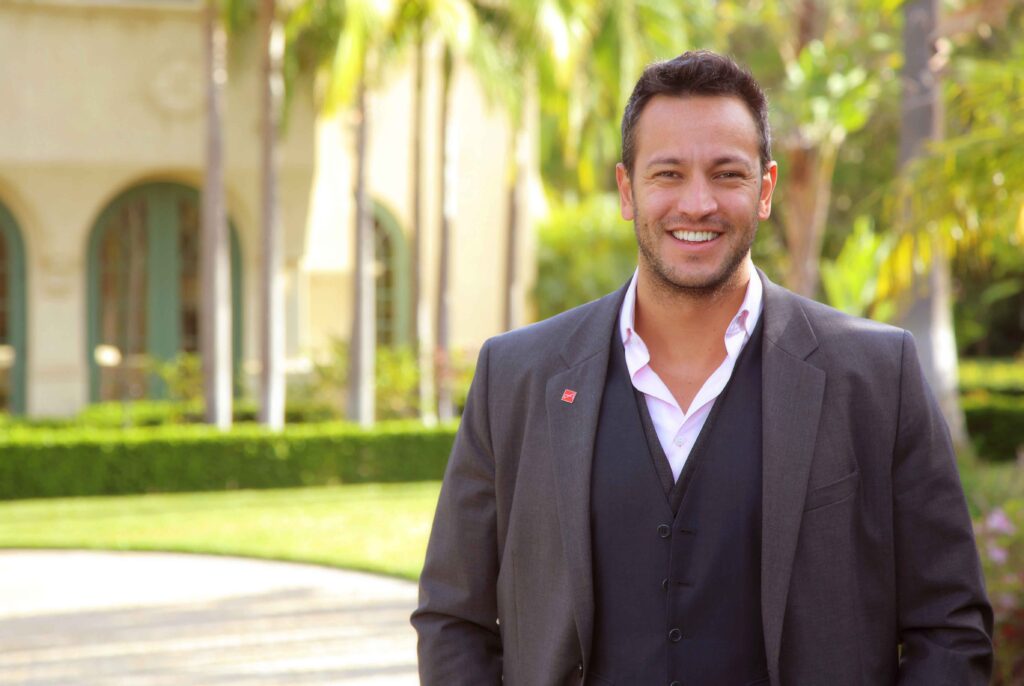
Episode Resources
Follow Santiago Arana
Follow along with Santiago Arana and The Agency:
theagencyre.com/agent/santiago-arana/
Check out The Agency’s youtube channel which features property tours of Los Angeles finest estates:
youtube.com/user/TheAgencyRE/
Full Episode Transcript
Santiago Arana – DIGS Influencers Podcast
[00:00:00] Santiago Arana: I remember clearly that was the turning point in my life because I ran out of the savings that I had and the phone was not ringing. People weren’t buying homes. People weren’t selling homes. and I parked outside this specific restaurant. I was just about to get out of my car and I had the resume in my hand and I started talking out loud to myself. I’m like, what the hell are you doing? You’re not going to freaking give up right now. Like this is the moment where you’re going to make it happen. [00:00:44] Warren Dow: Welcome to DIGS Influencer Podcast, the Titans of Real Estate. The show that provides direct access to the real estate industry’s top movers and shakers is they share invaluable insight on how to best navigate and succeed in any market. I’m your host, Warren Dow, founder and CEO of M3 Media and publisher of DIGS Magazine. [00:01:07] In this episode, Santiago Arana [00:01:16] Thank you to our sponsor bow concepts. Well, I’d like to introduce a very special guest to the digs influencer podcast. Mr. Santiago Arana. Welcome. [00:01:27] Santiago Arana: Hi. Thank you. Thanks for having me. Thanks for invitation to be part of this. I’m very excited. It’s always good to see you. [00:01:32] Warren Dow: Yes, likewise. And where do we start with your accolades, Santiago? [00:01:36] I mean, I want to just read off a quick list, but your credentials are impeccable and your growth in this industry and what you’ve done in a relatively short amount of time, it’s been 15 years ish, right. Yeah. It is truly remarkable. The last 12 months, you’ve sold 468 million in volume.Santiago Arana: That’s correct.
Warren Dow: And that’s the size of a medium brokerage by itself.
[00:01:57] Right? So it’s wild. Last year he did 420 million, and the year before in 2016 you did 305 million. So somehow you managed to continue to grow these ginormous numbers year after year, you lifetime 2 billion in sales. You’re ranked number six on real trends in the country is huge fact. Then top 250 agents in the country for seven consecutive years. [00:02:22] Congrats on all your success. [00:02:23] Santiago Arana: Thank you. Thank you so much. It’s very humbling. I’m very grateful about everything that you just read. [00:02:29] Warren Dow: [00:02:29] you should be. That’s awesome. So you joined The Agency in 2014 as a principal and partner. Yes. So before we get into that, tell us sort of your story. Like where did you grow up? [00:02:40] Take us way back to the beginning. [00:02:43] Santiago Arana: [00:02:43] All right. So I think I might’ve joined The Agency actually in 2013, but it doesn’t really matter. Um, I’m a Bolivian native. I was born in Bolivia. That’s South America for the ones that may not know. I studied business. I grew up in the middle class family. Then I went to university, studied business administration and marketing. [00:03:01] I was in a rush to get out and start making money. So I finish the business administration plus the marketing degrees in about five years, both of them. So at the age of 22 I was up and running and thought, okay, I’m ready now. And then when I went out there to the world to try to get a job and find out that, you know, it doesn’t really come that easy. [00:03:24] You don’t start by making tons of money. It was an interesting thing to see and I think that probably a lot of young people get to experience that ride. You go out and you’ve got to start working in. You don’t really know what you’re doing. It’s like, okay, I have this degree now, but what do I do? So, you know, there was not really a connection with what I wanted to do with what I was doing and the situation on my country was very hectic and political, social ways that I was not interested in being part of that. [00:03:51] There were a lot of killings and a lot of basically, you know, instability from every point of view. Always been a, you know, a person looking for success and build a life and be an example for my younger sister and people that I had around me. And I was just very clear at that point that to me to be able to do the things that I wanted to do, to be able to drive the cars I wanted to drive, to see the places that I wanted to see and have the life that I wanted to have. [00:04:14] It was going to be very difficult to do it in a country like Bolivia. Enlist. I was going to join to be a. Drug dealer or a corrupt politician, which are both careers are very short term that I’m not interested in. So at that point, when the crisis happened in Bolivia, this is 2002 they call it the black… I think it was black February or something like that. [00:04:33] The police and the army tried to kill the president and they kill each other and they were like over a hundred people that die that they have a block from my office. And that’s the day I said, okay, I’m out. Called my dad. I applied for a scholarship and I won the scholarship to do a master degree in finance. [00:04:47] The fortunate, I won’t say unfortunately because that’s what it led me to be here. It was only taught in English and I didn’t speak a word of English at the time and Hebrew actually, cause the scholarship was in a kibbutz in Israel. And I didn’t speak any word of that either. So I thought that I want to go on, you know, I told my dad, maybe I’ll go on the master degree, and then I come back with a new language with a new degree, which will put me probably in a better position of getting a better job than where I am right now. [00:05:12] That’d be a good thing to do. And give it a break, probably the country’s gonna come down a little bit, settle things will be better and disappear for two years. Come back a better professional, a better person. So he agreed and we made a decision that learning English probably will be more useful in Bolivia than Hebrew. [00:05:26] So I found out through my mother that she had a cousin that I had probably only met once when I was a baby. She was living here in the United States, so she called her and she invited me to crash her couch for about eight months, and then I was in Santa Barbara, which was great. Could have been anywhere else. [00:05:43] Warren Dow: [00:05:43] I went to school there. [00:05:44] Santiago Arana: [00:05:44] Yeah, so I remember like in the airport, like in the Miami airport, I stopped by there because I had friends who were actually going to college in Miami. I was like, yeah, I’m going there and maybe go through Miami and stop there, hang out with them and party for a few days and then go to see my aunt. [00:05:59] And I stopped but I remember when I was coming in, the immigration guy, you know, started talking to me in English, although he was Cuban and he spoke perfect Spanish. He was trying to give me a hard time. I had a letter prepared from my aunt in Santa Barbara that I just basically handed to him, and I don’t really know what to say at the time, but it must’ve said, you know where I was going to live, the address, and Barbara and the guy basically looked at me. [00:06:15] It was like Santa Barbara. Wow. And he just let me through. And I was like, I wonder why he made such a big deal about Santa Barbara. To me at the time, you know, it was like I could have been going to, I don’t know, somewhere in the middle of the United States. It didn’t make a difference for me. It was just coming to learn English and having the experience was exciting enough. [00:06:32] Not until I woke up in Santa Barbara and I was like two blocks from the ocean. I was like, “Oh, this is really nice.” So when I came here, you know, I had that free couch to stay and food that my aunt will provide, but I only brought $120 so I ran out of it really quick, you know, basically I went to ask her, do you have like. [00:06:50] You know, $20 I want to go out and I want to buy a beer or something, and she says, go get a job. And I was like, what? That’s not part of the plan. Right. You know? I was like, I’ll give her, what am I going to job? I was like, well, you don’t speak English, you don’t have a lot of choice, you know? So kind of went looking for stuff to do whatever. [00:07:05] And I got a job as a busboy. And [00:07:07] Warren Dow: [00:07:07] what year was this? [00:07:10] Santiago Arana: [00:07:10] 2003. Yeah, this is May, 2003 I was going to an adult education at night. I was studying from probably 6 to 11 o’clock at night, taking the bus back, and then I was busing tables in the day, and I did that for about three, four months. I picked up the language fairly quick and I graduated to waiter where I was making more money and I was communicating with people. [00:07:29] I was meeting friends and stuff like that. So it became something really. I was excited because I was making now a good amount of money to kind of hang out cause that’s what I was doing. I was now learning the English that I was communicating and all that. And then I started to think about like maybe staying here might be an option. [00:07:45] I don’t know if I want to go to Israel in 2003 I think there was in the middle of the war and then I was like, should I go there or should I stay here? You know? And was working in Montecito, going out to state street with all the college people was single. I was 23 it was fun. Right. So. I kinda like started really thinking about, you know, if I stay here, what I want to do. [00:08:03] And I had a cousin another time that was doing loans, I hung out with him and he’ll sit on his computer, work for two, three hours, make 10 grand, and then go surfing and party. I was like, “Oh, I want to do that.” You know. I asked him, I said, “what do you do?” I mean, do you need to study for days on back? She’s like, yeah, your study. [00:08:18] And you’d take a test and you get a license and you can do it, but you can take the same license and the same test and you can do real estate too. And I was like, what’s real estate? And he’s like, well, real estate is, and he explained it to me, right? I was like, yeah. “Well, never in a million years,” I thought I’m going to be doing real estate cause I’m Bolivia. [00:08:32] It’s not. And I think in most parts of the world has put specific locations. I’ve being a real estate agent, it’s not something that people look for as a career and very few places you can actually make a very good living other than a New York and LA and London or big places, you know? So it was very foreign for me at the time, but I understood. [00:08:51] He said, you know, you have a good personality. You speak two languages now, and I think you did really good in real estate better than loans. Loans are tedious and you’re sitting in a computer. And so I was like, okay. [00:09:00] So fast forwarding, you know, a year I waited on this beautiful girl’s table who is now my wife. [00:09:08] I met her at the same restaurant I was wearing and she was living in Los Angeles, and you know, I pursue her for like three months and kinda went away. She was not really interesting on, you know, really dating a Bolivian waiter that spoke half English at the time, I guess, and then a few months later, my cousin in the same cousin that told me to get a real estate license, call me and say, “let’s go to LA and there’s a party there.” [00:09:30] “You want to go?” I was like, “sure.” So we driving here and I’m like, Oh, I’ve got to call that girl. So I called Kyle and my wife’s Kyle and I go, uh, “Hey, I’m coming to LA, blah, blah.” And she was like, this is friends. And we basically got together and that was a time where we started like dating basically, and I was going back and forth, back and forth. [00:09:46] At that point in time, I was like, I got to move to LA because I really want to be with this girl. So in 2004 February I want to say, January I moved to LA and I decided at that point that, you know, I definitely wanted to stay in the United States because now I’m in love and I don’t want to leave this girl. [00:10:01] And I said okay, I need to do something. So I went, I got my license, I also got my degrees translated into the equivalent of what in English is. And I start to drop resumes everywhere and trying to get a job in different companies. And for the most part, you know, there were jobs that weren’t exciting enough for me. [00:10:14] I was making more money waiting tables cause at this point now I was like. Waiting tables and very good restaurants in LA and L’Orangerie and places where I was like, yeah, I’m making some nights, two, three, $4,000 a night. So this jobs weren’t really interesting at the time, and I was like, it’s gotta be something else. [00:10:29] That’s when I got my license and I was like, okay, I see that people can really make a big living here. The sky’s the limit if there is. One, two, three, four, five guys, they’re making more than a million dollars in commissions and no reason I cannot do it. So that’s how it kind of got into the real estates and that’s how I started. [00:10:44] I went and got my license, I hung my license in a company in Beverly Hills, and I started working there and kept working in the restaurant for about four years, from 2004 until at the beginning of 2008. Just kind of compensating, you know, doing real estate in the daytime, working and making some cash to leave. [00:10:59] Uh, just about the beginning of 2008, I feel comfortable enough to where I could drop the restaurant and I can now just do real estate 100%, which was very exciting moment in my life. You know, as I started to do really good, 2008 we got closer to October and shit hit the fan. And all of a sudden it became very difficult, you know, like. [00:11:18] The whole crisis and the recession, the recession. So it was almost like, okay, I’m starting to do this. I dropped the restaurant and boom, you know? And there was a very interesting moment of my life. I remember clearly that was the turning point of my life, because I ran out of the savings that I had, and the phone was not ringing. [00:11:36] People weren’t buying homes, people weren’t selling homes. It was very quiet and I basically got to, one day I woke up and I was like, shit, I’m going to have to just go back to the restaurant to kind of make some cash because this is not really going anywhere. At that point, we had our first child, he was three years old, my wife was pregnant again. [00:11:54] We really have more than 2000 bucks in my bank account. And I said, okay, I gotta do something. So I remember printing my restaurateur/waiter rescue me and I drove to Venice and Abbot Kinny. There were a couple of restaurants that seem to be places where you can make decent money, and I parked outside this specific restaurant and I’m in my BMW three series. [00:12:14] I remember I was just about to get out of my car and I have the resume in my hand and I start talking out loud to myself. I’m like, what the hell are you doing? It’s like, what are you doing? You know? It’s like you’re not going to freaking give up right now. Like, this is the moment where you’re gonna make it happen. [00:12:29] Yeah. And I never got out of my car and I said, I’m going to go on eat, sleep. I’m going to freaking push hard and real estate like no one is doing it right now. And nobody, the only guy that is opening houses Saturdays and Sundays, every freaking weekend, I’m going to go out and put out my signs at 6 clock clock in the morning. [00:12:45] I want to do everything that is in my power and I know that it’s gonna pay off. That’s a moment that you get introduced to your other self. You know the guy that you know that is inside you that says, you know what? [00:12:54] Warren Dow: We’ve had the same journey. Literally that year, 2008 was a turning point for me as well. [00:12:58] I changed careers. I was in that state of, you know what’s next? I really wanted to reinvent myself, and the economy was horrible. Right. So it wasn’t like it was a grand time to be starting something, but I realized, you know, it’s sort of the best time in the worst times to start or to double down, right. [00:13:17] To get focused and go, Hey, everyone’s running for the fences. You know, everyone’s panicking. If I can stay calm and focused, this is where I can expedite, you know, my growth or my career or whatever you’re working on. You find that. [00:13:30] Santiago Arana: Absolutely. I mean, you can only see the light in the darkest moment. If everything is bright and you have all these good things happening, you might not make the right decisions, but when it’s dark, that’s the only time where you can actually differentiate where the where the light is, and those are very life changing moments I think. [00:13:45] Warren Dow: I know when I started DIGS in 2010. Literally my first three appointments, which were with big, you know, owners of brokerages and big hitters in the South Bay. The first three he said, “don’t do it. Like you seem like a nice guy. Save your money, don’t do it. It’s not going to end well.” And that made me even more determined to go, okay, well thanks, but I’m crazy enough or ignorant enough to pursue this and do this. [00:14:09] So, you know, it turned out well, but it also gave me a sort of a unique insight into how things are when things are bad. Right. You know? So tell me about when those years, so when you decided not to go into that restaurant and pursue, you know, Madigan, tell me about those next couple of years, how that was. [00:14:26] Santiago Arana: Yeah. Well it was tough, you know, I think that everybody looks at the success of a person and how great they’re doing and where they are in life, but very few people actually look at all the failures and all the bad times and all the years of sacrifice and hard work and stress that you go through. [00:14:44] I think that I need big, successful person from, you know, Henry Ford and Abraham Lincoln. I mean. You name it. I mean, like all of them failed multiple times. All of them have bad times. I mean, nobody says, “Oh, I remember Lincoln was so great because he was eating canned food for 10 years.” You know? Everybody says, well, what a great leader he was. [00:15:03] So yeah, those two years were difficult, you know, until not about until 2011 actually. That things have started to change for me a little bit, and it was because I was the guy out there working harder. I think that when people start feeling that, you know, okay, well the crisis here is there, but we still need to move and do and leave that they really saw me all the time that, you know, remember me. [00:15:25] It’s like, Oh, that was the guy that does the guy that’s sitting every freaking Sunday. That’s the guy with the signs everywhere. That’s a guy, whatever. So then being through that bad time and just pushing harder is what solely defined my career. And that as the market turned around in 2012 we just skyrocketed. [00:15:39] Warren Dow: It’s kinda like the old adage, you know, like what did they say? 80% of success is just showing up and there’s truth to that. There’s truth to it. And just your proof of concept there. Showing up. So let me, first of all, I got, I went to ask you when you were talking about your earlier, what’s your Croatian tie? [00:15:57] And I asked you, cause I’m married to one. [00:15:59] Santiago Arana: Yes. So my mother is the Croatian side. Okay. Her grandparents moved from Yugoslavia, which was with at the time, four or five minutes end up moving from Yugoslavia to Bolivia and settle in Bolivia. So my mom’s a second generation Bolivian, but full-blood Croatian. [00:16:17] You speak any size? No, I don’t, unfortunately. I think that’s kinda how I found out that I am actually Jewish. I was raised Catholic and I found out not too long ago that because they came from Croatia, I think that these families were running away from something and they ended up settling in Bolivia. [00:16:34] You know, my mom said it makes sense now because my grandpa always got upset with my grandma, spoke the language and said, we can not speak the language here. So there were almost like kind of hiding and they decided that we don’t speak the language. We are Catholic now and we do these and we live this life because we were in survival mode, but yes, my mom is on both sides on her mother and her father are Croatian. [00:16:53] Last names are classic Baca. Tick [00:16:57] Warren Dow: That’s crazy. Awesome. All right. I was going to say Kako state, but you don’t speak. All right, so let’s go back. Tell me about your first sale in real estate. [00:17:04] Santiago Arana: So my first sale was in 2005 I was working at a restaurant on La Cienega called Bridge. There were the same owners of coy. [00:17:14] They opened this new restaurant across the street and there was a waiter from Australia there that wanted to sell his condo in West Hollywood. He was gracious enough to allow me to do with while I was just starting. So he helped me with that and I sold the condo. I actually double ended it, I brought the buyer too, so it was a good way to start. [00:17:36] Warren Dow: So you get a nice check. First check [00:17:38] Santiago Arana: It was good. It was a $420,000 condo and I was on the Larrabee. I remember between LA Cienega and sunset and a building there. It was great. It’s interesting enough now that I’m dealing with a client that just bawled the whole almost block what like three buildings and this building is one of them. [00:17:56] And he’s thinking about involving me to help him develop this apartment buildings in there and have like a brand new ten tower monitoring. [00:18:05] Warren Dow: That was awesome. It’s… [00:18:05] Santiago Arana: kind of comes [00:18:06] Warren Dow: full circle. Right. That’s awesome. What about your biggest sale? [00:18:09] Santiago Arana: Well the biggest sale is the one that I did last year was in Montecito. [00:18:13] I think one of the biggest one was 37 million. It was Ed Snider’s estate. Passed away just passed away a couple of years ago. They owned the Flyers, Philadelphia Flyers and the 76ers. That was 37 million was the biggest…it was the only sale above $20 million in the last 10 years in Montecito. So that was a big sales from every point of view. [00:18:37] There were a property was listed at the same price for about a year with local agents. When I took it didn’t change the price more than half a million bucks and sold it in first week. [00:18:46] Warren Dow: What do you think the difference was in that? [00:18:48] Santiago Arana: I think it’s a different combination of things. I think that this is a confirmation that relationships are important not only with clients, but with agents. [00:18:54] The property was listed in Santa Barbara, in the Santa Barbara MLS. They didn’t really thought of reaching out … out that area because agents in Santa Barbara, you know that gets, they just Santa Barbara it’s kind of like a self realized area where people really have to say, Oh, people don’t really want to buy, and they all buy from each other and they’re there. [00:19:13] Yeah. And I’m just guessing that that’s could be, or like, I don’t know what it is, cause you never know what it is, is it can be so many things, you know, it can be that the buyer of the property wasn’t ready until the week I took over. And now that there’s a new buyer that wasn’t on the market before, uh, it could be that we do a lot more marketing and things at The Agency than any other company. [00:19:30] The way how we reach out to the world is a lot more compelling. It’s proven when we put things on the market, it really gets in everybody’s face. So I think when we listed it. Well, you know, we put it really out there and was actually an agent in Beverly Hills that basically pick up the phone, call me and say, “Hey, I want to show this as soon as possible.” [00:19:48] I was like, “Oh, that was quick.” And we literally drove up there, showed it, and it was done. You know, I’ve had a few substantial sales. I, as you know, I own a development company called Cutting Edge. So I started doing. Spec homes with a partner of mine. His name is David Herskowitz. [00:20:02] Warren Dow: And your first development was sold to someone famous and yeah. [00:20:06] Who we love. Yeah. [00:20:07] Santiago Arana: On the Lakers. That’s [00:20:08] Warren Dow: correct. LeBron James. [00:20:10] Santiago Arana: Yeah. And I didn’t say that, you did, so I’m just putting it in a record. [00:20:13] Warren Dow: Yes. Record. Yeah. [00:20:15] Santiago Arana: No. Was an amazing house and Brentwood. That was the first big, big house that I did. I’m just happy to see that finished the way it did. [00:20:24] Warren Dow: Yeah. It came out nice. It was on our cover. [00:20:25] Beautiful, gorgeous, gorgeous home. [00:20:27] Santiago Arana: Beautiful house. That’s another substantial sale. You may have things like the one that sounds said that I sold in 20 million multiple offers. I had five offers in the first week when people thought that I was nuts of listing something on Sunset Boulevard for 20 million gone. [00:20:40] The one I sold to Lady Gaga in Malibu also was a great sale. It was the highest sale and the non-beach side of Malibu ever for 23-24 million. And some Beverly Hills, you know, Beverly Hills Post Office those would be the most substantial ones. [00:20:54] Warren Dow: So let me ask you, cause you deal obviously with A list clientele. [00:20:58] Yes. And it’s obviously different. A list is different, right, than non-A list. Yes. You will. Do you think your upbringing, your humble beginnings, you know, your start, you know, the whole journey that you took us on. Do you think that gives you a unique advantage because you’re this real person? [00:21:15] Santiago Arana: I think it’s a combination of things. [00:21:16] I mean, yes, absolutely. I think that people relate to the idea of the American Dream of someone that works hard, and I consider myself an honest person and everything’s on the table and I’m very direct, and sometimes people like it, sometimes they don’t like it. People don’t like it. And I think for the most part, people that they. [00:21:31] Made it to the top. They appreciate that they don’t have time for BS. So I feel a little more comfortable and it feels that is easier for me to talk to those individuals that made it a thought because I just cut through it and they really appreciate that and they see that. Growing up in Bolivia in the middle class is not necessarily a super humble thing compared to what the life standards in the United States are. [00:21:56] It is absolutely. I would be compared to a poor person here, when the way, how I grew up in Bolivia, but it’s a much more simpler life. But you know, my dad was a Senator at a point in time. So although we didn’t have a lot of money, we had good education, we were within a society with a group of higher society, you can call it, where you know, we were exposed to different things. [00:22:17] So I’m being always comfortable on dealing with people in the high end, because I grew up with. People will be in Bolivia at a time. They did the granddaughters of the President and met, you know, diplomatic people and from different parts of the world. And I think that’s just the way I was raised. [00:22:35] Warren Dow: You had a comfort level going in that, Hey, these are just regular people. [00:22:40] Santiago Arana: Yeah, yeah, and they are. Definitely.Warren Dow: Yeah. So what’s most important to these? You know, since we’re speaking of a list like. What’s most important to them cause they’re different. Is it discretion? Is it privacy?
[00:22:51] Santiago Arana: Privacy is super important. Discretion. And what I told you, and I was just being truthful and not be wanting to waste anyone’s time you know, they appreciate honesty. [00:23:01] You know, they don’t like to be told that the house is worth 40 and when it’s worth 30 then they go through six months of waste of time to find that out. They don’t appreciate that. So it may lose some listings by the same people that I know where that, and I might piss off some people, but I think for most part they appreciate it. [00:23:16] They want a partner. [00:23:17] Warren Dow: So tell me, how do you feel you differentiate from the competition? This could be individual agents or we’ll get into The Agency a little bit, but what are some of the things if someone were to say to you, you know, I’m interviewing X, Y, and Z, what’s different about you? [00:23:31] Santiago Arana: Yeah, well, I think the value play and what I bring to the table is me. [00:23:35] I think the difference between everybody else and me is that is me. And I know it sounds funny, but that’s the reality. So it’s a personal relationship business, and you enter into a relationship with a client and you’re going to be talking to that person and you’re going to enter a relationship with, you’re emailing, texting, talking, calling. [00:23:52] So I think that any buyer or seller, firstly to find and that person, someone that they can get along, that there is chemistry and there can be a relationship. That’s to me, the key, most important thing. Obviously backing that up with. Knowledge on the market and knowledge and your craft is super important. [00:24:08] So I do know the market very well. And I’ve been doing this for 15 years now. So, you know, they say that you become an expert on what you do after 10 years of any craft. So I think that me being me, I bring the value of who Santiago is and what comes with it. Hard work showing up on time and the experience and the expertise, not only in real estate and the numbers and the values, but also bring my builder background where I can understand sites, land. [00:24:35] That’s why I sell a lot of land. And that’s why I work with a lot of developers, you know, kind have a very good understanding of what the consumer wants and what the trends are and how they change and how fast they change. So I think that’s what the difference is. You know, I think everybody’s different and everybody brings different things on the table. [00:24:51] And that’s what I bring to the table. [00:24:53] Warren Dow: Awesome. And I think you’re a case study Santiago in sort of the slow and steady wins the race, you know, in today’s world we live in this connected economy. Everyone’s looking for shortcuts, quick fixes, you know, instant success. Um, and your story exemplifies, you know, slow and steady, you know, showing up good times, bad times, making hard decisions, and building a brand and a reputation that proceeds you. [00:25:17] So, going back to your Santa Barbara big sale, you know, it was you that made the difference, you know? But it’s also what you bring besides you, which is this sort of network and this presence and energy that magnetizes good things, you know? [00:25:30] Santiago Arana: And that’s why I exercise a lot. Do you know what I mean? I do these seminars when I speak to the agents, want to find out what the secret is, right. [00:25:37] And I always tell people. You can be 100% of the best of yourself and you’re not giving 100% to yourself. So if I don’t wake up at 5:00 in the morning and meditate for half an hour and then go to the gym at 5:30 until 7:00 and I don’t have breakfast with my kids and take them to school, I can’t show up to work being me when I go to that first appointment or when I go to that last appointment of the day, the reason that I carry the energy. [00:26:03] The aura did whatever you want to call it. When I show up in that door, they feel the difference. They feel that energy. They feel that someone that has show up there and being there, present, happy on top of that. And then when you back that up with knowledge and expertise, then you know, people really relate to that. [00:26:20] So when I talked to these agents, they all want to know the secret, and I was like, what’s the secret secret? I’m like, look, I will tell you exactly what I do. Every day when I wake up, what I do, how many calls I make, what I did in the beginning, everything. The execution is where everybody drops the ball. [00:26:34] And I think it’s not just in real estate, as in any business in the world, everybody wants it fast and they drop the ball. So I’ll tell you the secret right now, when I’m speaking in a room with 200 or 300 people. And I say, I can guarantee you that we will meet in three months. I can bet money that there is a handful of people that are actually doing it, all the other 350 or 295 or whatever it is, they just drop the ball. You know? It’s that execution. It’s actually doing. It’s actually scheduling it. If you don’t schedule it, it’s not real. Like Tony Robbins says. Right? You need to schedule it. So that’s what my opinion is. [00:27:09] Warren Dow: Oh, that’s great. [00:27:09] I mean, there’s a common thread. I have the unique sort of luxury of, in my position of dealing with the Santiago’s primarily because our business model is built on the 80-20 rule. Right? Very powerful. 20%. Of X are responsible for 80% of the output, right? Why in luxury real estate is probably 90-10 right? [00:27:27] 85-15 and there’s a common thread within the 15 or the 10 a common thread. And everyone’s trying to figure out what the secret is. Like it’s some single component or item or tactic, you know, and it’s not, it’s slow and steady and it’s a brand and building, you know, a reputation that proceeds you and has a, you know, a magnetizing effect. [00:27:47] Where people seek you out versus finding you, you know, trying to be found. So let’s talk about the real estate industry, which hasn’t changed much in 10 years, right? Queue laughter now. Queue the laugh track [00:28:00] Santiago Arana: Just a little bit. Yes. I mean, that’s what we were discussing earlier. I think that after the crisis or the recession in 2008-2009 I think the turning point was April, 2012. [00:28:12] Think in April, 2012 like everybody felt confident enough that things were turning around. We started on this amazing race up since then until about where we are now.Warren Dow: 6 year solid run. Yeah.
Santiago Arana: Yeah. It’s been an amazing race has been incredible for Los Angeles, I think. I think it’s incredible for the people that live in Los Angeles and the owners of properties.
[00:28:33] The Los Angeles city has changed from what is always been known as LA Hollywood, Disney land. Great place has got back to our countries who are New York, Hong Kong, London were the capitals of the world at the time. We finally in the last five, four years because of what happened here, LA has become now a capital of the world. [00:28:56] Now LA is a place where the wealthiest people in the world, the wealthiest investors of the world, have already turned their eyes towards, and they want to own real estate. They want to invest here, or they want to open businesses here. Besides that, you pay most amount of taxes than anywhere else. They still want to be here and the reasons why they want to be here. [00:29:14] That because it’s becoming the hub is becoming the Rome of the times of Rome, [00:29:19] Warren Dow: and there’s only one here, right? Yeah. There’s only one Malibu and the weather [00:29:25] Santiago Arana: and the prices compared to all those main cities that I just mentioned, you know, Singapore, Hong Kong, are still a lot lower than what they’re there. [00:29:34] And uh, you can get a lot more for your buck. So it’s all these people are moving here. I mean, the fundamentals are so strong, uh, that that’s why it’s sustaining these market and the way it is longer than what everybody expected. Uh, the cycles. You know, maybe changing, you know, it used to be every certain amount of years, seven years, now it might be a longer cycle. [00:29:54] Maybe these cycle prolongs more. [00:29:56] Warren Dow: So what about the ultra? I mean, it’s gotten a little bit frothy in some areas. So in particular, like South Bay in Manhattan Beach has gotten pretty frothy. And then you’ve got all this development, all this new, the spec stuff in Beverly Hills. You know, we have the, you know, there’s $1 billion land listing now. [00:30:14] Right, $1 billion [00:30:15] Santiago Arana: stupid, but it’s off market now. That’s not going to sell. [00:30:18] Warren Dow: And what was the other one? Like 500 million is [00:30:21] Santiago Arana: sort of the 500 spec house. So we’ll look, I mean, there’s different ways to look at it. I mean, the market is, personally, I think the market’s strong right now. The market is strong for. [00:30:30] Sellers are sellers, they have good products and their price, well, the market is not strong for the people that are delusional on their putting prices that are just not going to happen. And the problem is that, you know, like the sunset strip has to be more specific. I mean, I knew about three years ago that that was going to be the place I was going to hit first. [00:30:46] And the reason is because there’s one guy that. You know, very young guy that bought a property for 75 million, the Minecraft owner, and that was 3,500 a foot I think. And all of these people told that that’s going to be the norm. I mean, you can go buy one sale. So they, all these developers went on, started buying properties for. [00:31:03] Land values that they were unreal expecting to have these prices and they all hit the market. There were 85 permits pulled back two years ago for new construction in one area. So what’s going to happen when you bring all those properties in the market and they’re all expecting the same numbers and they all look the same and they’re all brand new. [00:31:19] I mean, there’s not that many buyers really that are going to buy all at the same time. So what happens is one of those two, three, five of those guys can afford to go down and it’s gonna bring everybody down. So what the consumer looks at, Oh, the prices are going down the way, how they interpret this, like all the prices going down, the market’s going down, this is a bubble, blah, blah, blah, blah. [00:31:37] Well, the reality is like that’s a perception, but that doesn’t necessarily mean that’s true. While we are listing properties in Brentwood Park for 20 million and they’re selling you know with multiple offers, in two days. So that kind of shows you that it’s very area specific. Yes. I think the market is softening. [00:31:51] I think that it’s probably gonna start softening a little bit more, but there is still a number of buyers that want to live here. The amount of families that I sold houses in the last two years to people from New York, Chicago, Boston, London, there are people who are moving, not just their families, but their business to LA. [00:32:06] I mean, you have Peter Jackson opening the museum here. You have the Ram stadium, now you have the LAFC stadium that is amazing. And there’s so many fundamentals like downtown is on fire. The sunset strip, all the buildings, the House of Blues is going to be an amazing building in there. You have the Edition Hotel. [00:32:21] They’re sold out. They only have one left and they sold for over $2000-$2500 a foot. You know, condos. That’s never happened before. It’s finished. It’s not even finished. It sold out. That never happened in LA before, that’s a model that works in the East coast in New York. You pre-sale in Miami, you presale in LA it’s never worked, and now we’re starting to work. [00:32:38] So all those fundamentals. Kind of give me peace of mind that you know, things are going to be right, but people don’t go with crazy because now technology has gotten people to have access and be more aware of what happens. They can go on their phone, they can go to Redfin, Trulia, Zillow, all those user-friendly sites, and they can know what the comps are, what things are selling. [00:32:57] So when you overprice a property, they know it and they don’t pay attention. They put it on the back burner, they put it on the back burner, they forget about it. And then you need to do a major price reduction to become, you know, in the awareness of people again. So [00:33:08] Warren Dow: yeah, I need like, how do you price some of these new developments? [00:33:10] Like what’s your CMA? You bring it in and like, ah, you know, perception is reality for sure. And it’s almost created this false market when like the Minecraft guy comes in, he wants what he wants and he’s going to pay whatever he wants.Santiago Arana: That’s it.
Warren Dow: That’s not a market price reality. That’s his reality, his value.
[00:33:24] Santiago Arana: You get 10 of those, different story. [00:33:27] Warren Dow: Right, right. You know what I mean? So it’s happening everywhere where, you know, there’s only one Manhattan Beach or these lifestyles that living here afford, and people are gonna pay what they think is the value for them. So yeah, it’s changing. So let me ask you, let me get into some tactical, because like I view you as like your knowledge and your expertise is, you know, if you have an hourly rate or a day rate, it should be off the charts. [00:33:55] In terms of what you could charge for your intel into the market. So what would you give like a seller today? Like let’s talk about in Brentwood, what would the best advice you would give a seller today? [00:34:05] Santiago Arana: The best advise you can give a seller is just to listen to the advice of a knowledgeable agent and price well. [00:34:11] Pricing is the key element because it’s been proven that every time you overprice a property and stop selling for less than what you could have sold, that if you were to price it right from the beginning. So price, price, price, just make sure that you are pricing the property well, don’t overprice it. You cannot really leave money on the table. [00:34:29] People are very knowledgeable and aware of what the values are. When you come a little lower is going to adjust up. One, two more people are going to jump into it. So you have better chances of selling something for more when you actually go lower than higher. [00:34:40] Warren Dow: Right. Just keep it around a little bit. The international, you know, investment and money. [00:34:44] Is that starting to taper off a bit? [00:34:46] Santiago Arana: No, no, it’s not. I met with a gentleman last week here that he’s ready to bring billions. I mean from London, from Singapore, from China. They want to invest major, major, major commercial. [00:34:57] Warren Dow: What do you think the percentage of overall investment or transaction volume is internationally, like in the Westside? [00:35:02] Santiago Arana: I don’t have an answer for that. [00:35:04] Warren Dow: you don’t? Okay. It’s probably pretty high though. Higher than people think.Santiago Arana: Yeah. It’s high.
Warren Dow: Yeah. All right, so I want to talk about the industry consolidation that’s happening. It’s gotten crazy with Compass, you know, all this investment. All those acquisitions. Everyone’s, especially on the Westside and these really high end markets are jostling, positioning, recruiting.
[00:35:23] What are your thoughts? [00:35:24] Santiago Arana: My thoughts are like, geez, that doesn’t sound very different than what happened before. I mean, companies have been buying companies in the real estate for many years. I mean like, you know what happened with Fred sands? We’re having Douglas and I mean, it’s just, it’s happened. You know what I mean? [00:35:36] Like. I don’t see these as being anything other than what’s been happening. Always bigger companies obtaining and smaller companies. I think that everybody has to choose where they want to be. And if you want to be part of a big conglomerate of agents where there’s not really the culture that we have here at The Agency, that might be for you. [00:35:54] You know, you go there and you have, you know, a big company that is value or the ridiculous number and that’s fantastic. Or if your style is more dealing with less people and feel like you have a family and you have a smaller culture with everybody really cares about each other and wanting to be more of a boutique company. [00:36:10] That’s great. So I think the space for everybody, I think there’s just different business models. I think that it’s actually great to coexist with someone like Compass, for us it’s great. You know, whatever Compass is we want to be in. We want to be that boutique company, smaller, high end market, and they can be whatever they want to be. [00:36:25] Warren Dow: What’s new with The Agency? What are you guys working on or planning? [00:36:29] Santiago Arana: Expanding. Our expansion is definitely new. I mean, our new office just launched this weekend in South Florida and Boca Raton, we’re going to be going to Miami. We’re about to open an office in Dallas and Austin. We just opened three offices in San Francisco. [00:36:42] We opened in Canada, in Victoria and Victoria islands called in British Columbia. We have Caribbean, we have all the offices here in LA. How about 27 offices I think now. Wow. So expansion is next for us. [00:36:55] Warren Dow: You guys have grown so fast. I mean, that’s awesome. What do you think about this iBuyer thing? Where do you see this going? [00:37:01] Santiago Arana: I think it’s going to be interesting to see. I don’t necessarily think that that applies to the Los Angeles market and especially in the high end. I feel that with all this iBuyer, with all this AI that is going to happen the world I think is going to change to certain degrees. I think that there’s jobs that they’re going to be replaced by computers, artificial intelligence. [00:37:18] But I think that actually that’s when experiences are going to become more valuable that you can not buy, and then you need that personal relationship with someone that you can talk to when you’re selling a high end home and I just have a hard time believing that someone’s going to sell a $20 million house, $10 million house through a computer. [00:37:37] So, I mean, people want to make sure that you’re qualifying that buyer, the who the guy is that has the money and you know, like all those things that. Sometimes computers can replace that. You know, nobody knows what’s going to happen in the future, but that doesn’t concern me one bit on what I do. [00:37:49] Warren Dow: So fun question. [00:37:50] Do you and Maricio and Billy have a side bet who’s going to sell more each year? You bet a buck. [00:37:55] Santiago Arana: No, we don’t have a side bet. I think that kind of, we all go on our own and do our own thing. We work different markets. You know, they work more to Beverly Hills areas, I work west of the 405, eh, no, I don’t think there’s a side bet. [00:38:09] But good idea. [00:38:12] Warren Dow: Let’s talk towards the closing thoughts. What do you do for fun? [00:38:15] Santiago Arana: What I do for fun, I mean my fun is being with my family. I’m out every day of the week working, dealing with people, and meeting people, so when the weekend comes, it’s really good place for me to really relax. That’s the one thing that when my wife, we sometimes like I go, friday nights, “what do you want to do” and be like, “Oh, let’s just stay home. Let’s relax. Let’s barbecue,” and she’s like, “I’ve being home the whole week. Let’s go out.” I’m like, “okay, so we need to compromise a little bit,” but truly being with my family and my closest friends is where my fun is. Travel. I like to travel too. [00:38:41] Warren Dow: And where do you like to travel? [00:38:43] Santiago Arana: I like Italy. Italy is my favorite place so far in the world. [00:38:46] I like going to Italy. [00:38:47] Warren Dow: Nice. Nice. What’s something that people would be surprised to know about you? [00:38:53] Santiago Arana: I mean, people have been surprised that I’m actually a good cook. Like when I invite clients or friends to the house and I cook, they’re surprised that I was actually able to cook. [00:39:00] Warren Dow: What do you like to cook?[00:39:02] Santiago Arana: Uh, anything that is grill. I love grilling. I do pastas. I do a number of different things and Bolivian dishes.
[00:39:09] Warren Dow: Awesome. That’s cool. Good stuff. So thank you, Santiago, for spending the time with us to learn about your incredible journey in real estate, and I think our audience will get some insight into you as a person and into what you bring to the table representing buyers and sellers. [00:39:26] So continued success to you and we’ll look forward to talking and seeing you soon. [00:39:30] Santiago Arana: Thank you so much again. I’ll look forward to seeing you and I hope that people find some value on what we just discussed right now. [00:39:46] Warren Dow: Definitely. And that wraps up this episode. Thank you for tuning in and we hope you found some value. Please share, subscribe, and leave a review. Find us on iTunes and your favorite podcast provider. Until next time. [00:40:01] thank you to our sponsor bo concept.

